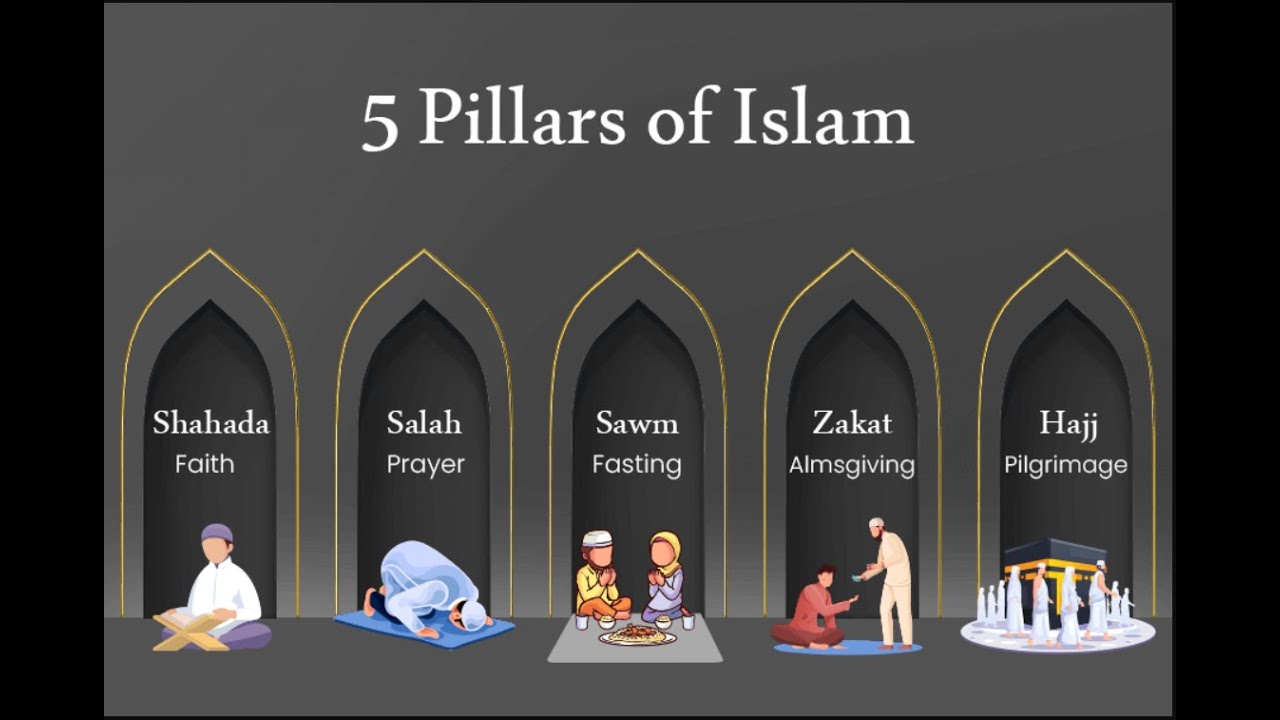The Five Pillars of Islam are regarded as the fundamental acts of worship that define a Muslim’s faith and practice. These pillars are observed by millions of Muslims across the UK and form the cornerstone of Islamic belief, providing structure and meaning to daily life.
Understanding the Five Pillars
Each pillar represents a vital aspect of Islamic worship and is considered essential for spiritual development. The pillars are designed to strengthen one’s relationship with Allah whilst fostering a sense of community amongst believers.
1. Shahada (Declaration of Faith)
The Shahada is recognised as the most fundamental pillar, representing the declaration that “There is no god but Allah, and Muhammad is His messenger.” This testimony is recited by those entering Islam and is repeated throughout a Muslim’s lifetime during prayers and moments of reflection.
In British mosques, the Shahada is often heard during conversion ceremonies, where new Muslims are welcomed into the faith. The declaration serves as a constant reminder of one’s commitment to monotheism and acceptance of Prophet Muhammad’s guidance.
2. Salah (Prayer)
Five daily prayers are performed by practising Muslims, creating a rhythm that connects believers to their faith throughout the day. These prayers – Fajr, Dhuhr, Asr, Maghrib, and Isha – are offered at specific times, regardless of one’s location or circumstances.
Many UK Muslims have adapted their prayer schedules to accommodate work and school commitments, with prayer rooms now commonly found in British universities, hospitals, and workplaces. The prayers are performed facing Mecca, reinforcing the global unity of the Muslim community.
3. Zakat (Charitable Giving)
Zakat is calculated as 2.5% of one’s wealth and is given annually to those in need. This pillar is viewed as a means of purifying one’s wealth whilst supporting society’s most vulnerable members. British Muslim charities have developed sophisticated systems for collecting and distributing Zakat, ensuring funds reach deserving recipients both locally and internationally.
The concept extends beyond mere financial contribution – it’s understood as a form of social responsibility that helps reduce inequality and strengthens community bonds.
4. Sawm (Fasting during Ramadan)
The month of Ramadan is observed through fasting from dawn until sunset, abstaining from food, drink, and other physical needs during daylight hours. British Muslims often find this pillar particularly meaningful, as it’s shared collectively across the community.
During Ramadan, UK mosques become centres of activity, with iftar meals (breaking the fast) bringing families and communities together. The long summer days in Britain can make fasting challenging, yet this is seen as an opportunity for greater spiritual reward and self-discipline.
5. Hajj (Pilgrimage to Mecca)
Hajj is undertaken at least once in a lifetime by those who are physically and financially able. This pilgrimage is performed during specific days in the Islamic calendar and represents the ultimate act of devotion and unity amongst Muslims worldwide.
Many British Muslims spend years saving for this journey, often utilising Umrah packages for the lesser pilgrimage as preparation. Reputable travel companies specialising as an Umrah and Hajj travel agency have emerged across the UK, helping Muslims fulfil this sacred obligation. These Hajj Pakages are carefully designed to accommodate the needs of British pilgrims, ensuring a meaningful spiritual experience.
Living the Pillars in Modern Britain
The Five Pillars are practised by UK Muslims in ways that respect both Islamic tradition and British society. Mosques serve as community centres where these practices are nurtured and supported, whilst Islamic schools help younger generations understand their significance.
British Muslim families often pass down the understanding of these pillars through daily practice rather than formal instruction. Children observe their parents’ dedication to prayer, witness the joy of charitable giving, and participate in Ramadan traditions, naturally absorbing these fundamental aspects of faith.
The Spiritual Impact
These pillars are understood to work together, creating a comprehensive framework for spiritual development. Prayer provides daily connection with Allah, whilst charity ensures one’s heart remains attached to community welfare. Fasting develops self-control and empathy, and pilgrimage represents the culmination of faith through physical and spiritual journey.
The declaration of faith ties all these practices together, serving as the foundation upon which the other pillars are built. This interconnected system is what makes Islam a complete way of life rather than merely a set of religious obligations.
Community and Individual Practice
Whilst the pillars are individual responsibilities, they’re often fulfilled within community contexts. British mosques facilitate group prayers, organise charity collections, provide iftar meals during Ramadan, and offer guidance for those preparing for pilgrimage.
This community aspect helps maintain the pillars’ relevance in contemporary British life, ensuring they remain living practices rather than historical obligations. The support network created through shared observance strengthens both individual faith and collective identity.
The Five Pillars continue to guide British Muslims in their daily lives, providing structure, purpose, and connection to both their local communities and the global Muslim ummah. Through these practices, faith is not merely believed but actively lived and experienced.

